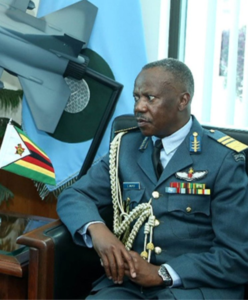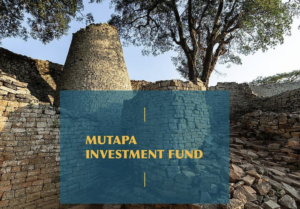THE DOWNFALL OF MERITOCRACY IN ZIMBABWE UNDER MNANGAGWA’S RULE

In the annals of political history, the term “nepotism” often conjures images of corrupt, authoritarian leaders indulging in the shameless practice of appointing their family members and close associates to key government positions. Such actions not only undermine meritocracy but also erode public trust and hinder a nation’s progress. Zimbabwe, under the leadership of President Emmerson Mnangagwa, has sadly become another glaring example of this detrimental phenomenon. In a shocking display of patronage, nepotism, and cronyism, Mnangagwa has appointed his sons and other well-connected individuals to crucial government roles, raising serious concerns about the future of the nation.
One of the most alarming instances of Mnangagwa’s nepotism is the appointment of his son, Kudakwashe Mnangagwa, as the deputy Finance minister, and his nephew, Tongai Mnangagwa, as the Tourism deputy minister. These appointments have raised eyebrows due to the lack of any significant track record or qualifications that would justify their roles in such important positions. However, this nepotistic trend extends far beyond these two appointments. Mnangagwa has populated various government and state institutions with clan members and close associates, effectively transforming his administration into a tight-knit circle of relatives, friends, and cronies.
Comparatively, the late former president Robert Mugabe, for all his excesses in power, rarely appointed his relatives to key government positions. Although there were a few instances of family members in state institutions towards the end of his political career, they were not as brazenly placed as Mnangagwa’s sons. In stark contrast to Mugabe’s relatively restrained approach, Mnangagwa’s nepotism knows no bounds, even extending to his wife, Auxillia, who has been dispatched on government business despite lacking any official capacity. This flagrant abuse of power and office is a disheartening echo of authoritarian leaders around the world who prioritize personal gain over public service.
Mnangagwa’s nepotistic actions raise a multitude of concerns, ranging from questions about meritocracy to the prevalence of corruption and kleptocracy in the government. The appointment of unqualified individuals to important positions is a clear violation of the principle of meritocracy, undermining the efficiency of public services and harming citizens. Furthermore, it perpetuates a culture of “our time to eat mentality,” symbolizing greed and corruption at the highest levels of government. Additionally, Mnangagwa’s nepotism jeopardizes governance, leadership succession, and the potential establishment of a family dynasty, further eroding the country’s political stability.
At its core, Mnangagwa’s nepotism raises ethical and character issues on his part. A critical duty of the President is to professionalize key government institutions, ensuring that they operate efficiently for the benefit of citizens. It is not his role to turn public service into a family affair or a feeding trough for his relatives and associates. Zimbabweans should resist and reject this form of nepotism, as its consequences can be destructive and far-reaching. Incompetence, poor service delivery, and corruption are just some of the immediate repercussions, with the potential to exacerbate poverty and increase the suffering of the people.
Even arguments that defend nepotism by claiming that family members are qualified in their respective fields are problematic. Ultimately, it is still the President or another public official who makes these decisions, opening the door to nepotistic practices. In fact, history has shown that dictators often use this justification to legitimize their actions, further undermining democratic principles.
To counteract the detrimental effects of nepotism, some countries have implemented laws and norms to prohibit the appointment of relatives to government positions. The United States, for instance, has had an anti-nepotism law in place since 1967, preventing government officials from hiring family members within their agencies. Zimbabwe should seriously consider implementing similar legal safeguards to combat nepotism in the public service.
Mnangagwa’s brazen nepotism is a grave concern that threatens the very fabric of Zimbabwean governance. It exemplifies a reckless disregard for meritocracy, fuels corruption, and raises disturbing questions about the future of the nation. Zimbabweans must stand against this practice and demand accountability, transparency, and fairness in government appointments to ensure a brighter and more equitable future for their country.



